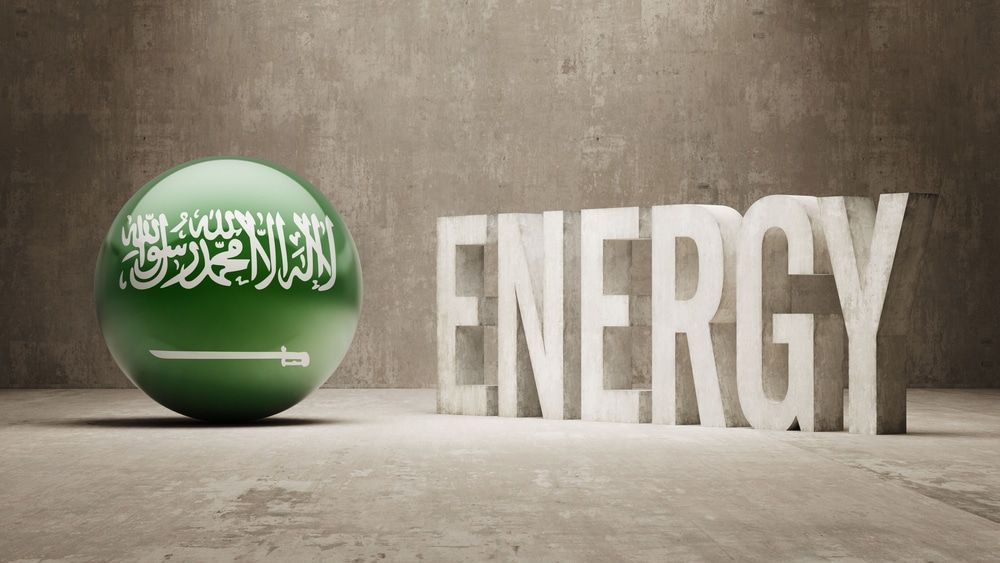No to a permissive US-Saudi nuclear deal
By Victor Gilinsky, Henry Sokolski | February 22, 2018

A US-Saudi nuclear agreement is said to be in the works. The reported deal would allow Saudi Arabia to buy US nuclear power reactors and—because of Saudi resistance to stricter terms—would be “flexible” on Saudi uranium enrichment and on reprocessing of spent reactor fuel. The trouble with flexibility regarding these critical technologies is that it leaves the door open to production of nuclear explosives.
More disappointing, although perhaps not surprising, is that the proposed agreement has the support of more than a few nuclear policy experts outside government. They make a familiar argument regarding nuclear exports: If the United States insists on stricter terms—terms that bar enrichment and reprocessing—the Saudis will turn to Russia or China for nuclear technology, granting these countries greater influence in the Middle East. The United States has been down this road before, in the cases of Iran and India, and it didn’t turn out well. A permissive US-Saudi nuclear agreement would be strategically dangerous for the United States and the region. Congress should not approve such a deal.
What’s driving the administration to cut such an agreement? Let’s set aside the Energy Department’s claims that the Saudis need nuclear power plants and that Westinghouse has a chance to get the business for the United States. First, the Saudis have cheaper energy options—natural gas and renewables. This is clear from the decision of the similarly situated United Arab Emirates not to build more nuclear plants beyond four reactors already planned or under construction. Second, Westinghouse—now bankrupt—has no chance to get the business, and in any case it is no longer a US-owned company. The Saudis, if they did go forward with developing nuclear energy, would do business with the South Koreans, who are successfully completing a proven reactor design next door in the United Arab Emirates.
If buying American is not the key driver of this deal, what is? The Saudis, to maintain the option of using in its plants US parts whose export is controlled by law, want an umbrella agreement. But they obviously have more in mind than nuclear energy. They compete with Iran for influence in the Middle East, and they are obsessed with this rivalry. They are convinced that they need to match Iran’s nuclear potential. That means being within arm’s reach of a Bomb. These circumstances shouldn’t surprise anyone, and in fact one of the main reasons to restrain Iran is precisely to avoid such a scenario. If Saudi Arabia opts for nuclear weapons, Turkey and Egypt may be close behind. Taking into account Israel’s nuclear arsenal, the Middle East could turn into a nuclear cauldron.
The scary part is that the prospect of Saudi Arabia matching Iran doesn’t faze the deal’s promoters—indeed, some see it as an advantage. They detest President Obama’s Iran deal so much that, in a permissive US-Saudi agreement, they see any implicit threat to Iran as a positive feature. If the Saudis had the same Bomb potential as Iran, they say, wouldn’t Iran then hesitate to go for a Bomb? Possibly—but on the other hand, Saudi potential for nuclear weapons might provoke Iran to build its own weapons. That would be the worst of all possible worlds.
One must also consider the longer-term consequences of allowing “flexibility” in a nuclear deal with Saudi Arabia. Nuclear plants proposed for the Middle East, or now being built, will last many decades. But will governments in the region last that long? The Saudi kingdom—despite recent, overhyped steps toward modernity such as allowing women to drive—is an anachronism. However firmly entrenched the kingdom appears in the person of Crown Prince Mohammad bin Salman, it could disappear overnight, as almost happened in the fundamentalist attack on the Grand Mosque in 1979. Recall Washington’s experience with the Shah of Iran, whom the United States saw as its best friend in the Gulf. The United States was ready to sell the Shah two dozen reactors and even give him access to fuel technology. None of that happened, but MIT set up a special program to educate his nuclear engineers, some of whom are now central to Iran’s centrifuge enrichment activities. Who will inherit the nuclear technology that may be acquired by Saudi Arabia?
A more fundamental difficulty with the current discussions over the Saudi deal is that the Washington consensus on the international role of nuclear power has changed hardly at all since the days of Atoms for Peace, more than half a century ago. But nuclear energy is no longer the world’s energy option of choice, and is definitely not the gateway to an advanced economy, as it was once thought to be. It’s just an expensive way to generate electricity. The United States, most of Europe, and Japan—countries where elections matter—have pretty much given up installing large nuclear reactors. There is nothing inevitable about nuclear power’s further acceptance in the rest of the world. The political value of supplying it—which underlay Atoms for Peace during the Cold War—is much diminished. But nuclear power’s weapons potential is, if anything, more worrisome than ever. It does not make sense for the United States to promote nuclear energy internationally.
China and Russia continue their civil nuclear programs, but their wares are not particularly attractive. Russia has made sales in Egypt and Turkey by offering to own and operate plants throughout their lifetimes, and to provide generous financing. It remains to be seen how that will work out. The nonproliferation conditions that Russia and China impose are in certain respects not inferior to those imposed by Washington. The Russians would provide fresh reactor fuel and take back the spent fuel, which would obviate any need for local reprocessing or enrichment. If the United States makes an absolute goal of keeping Russian and Chinese nuclear activities out of Saudi Arabia, as the Washington think tanks insist it must, then of course Washington will have to go along with whatever terms the Saudis will accept. But that is no way to conduct a negotiation.
The right approach is for the United States to cooperate with Middle Eastern countries, which sit on gas fields and don’t lack for sunlight, to develop economically attractive energy alternatives to nuclear power. If Middle Eastern nations still opt for nuclear power, the evidence of their genuine interest in energy and not Bombs would be their willingness to agree to provisions barring enrichment of uranium and separation of plutonium. Saudi Arabia’s neighbors in the United Arab Emirates agreed to that, as well as to augmented international inspections. In any US-Saudi nuclear deal, the United States should accept nothing less. In view of the White House’s inclination to be “flexible,” resistance will have to come from Congress, which needs to assert itself.
Together, we make the world safer.
The Bulletin elevates expert voices above the noise. But as an independent nonprofit organization, our operations depend on the support of readers like you. Help us continue to deliver quality journalism that holds leaders accountable. Your support of our work at any level is important. In return, we promise our coverage will be understandable, influential, vigilant, solution-oriented, and fair-minded. Together we can make a difference.
Topics: Nuclear Energy, Nuclear Weapons, Opinion
















